From LMS to Simulation: How EdTech is Evolving in 2025

Introduction
From LMS to Simulation: How EdTech is Evolving in 2025 The world of educational technology—EdTech—is shifting faster than ever. In 2025, the backbone of digital learning, the Learning Management System (LMS), has transformed far beyond a simple course delivery tool. Today’s EdTech platforms integrate AI, immersive simulations, predictive analytics, and global collaboration to create transformative experiences for both students and educators.
1. Smart, AI-Powered LMS and EdTech
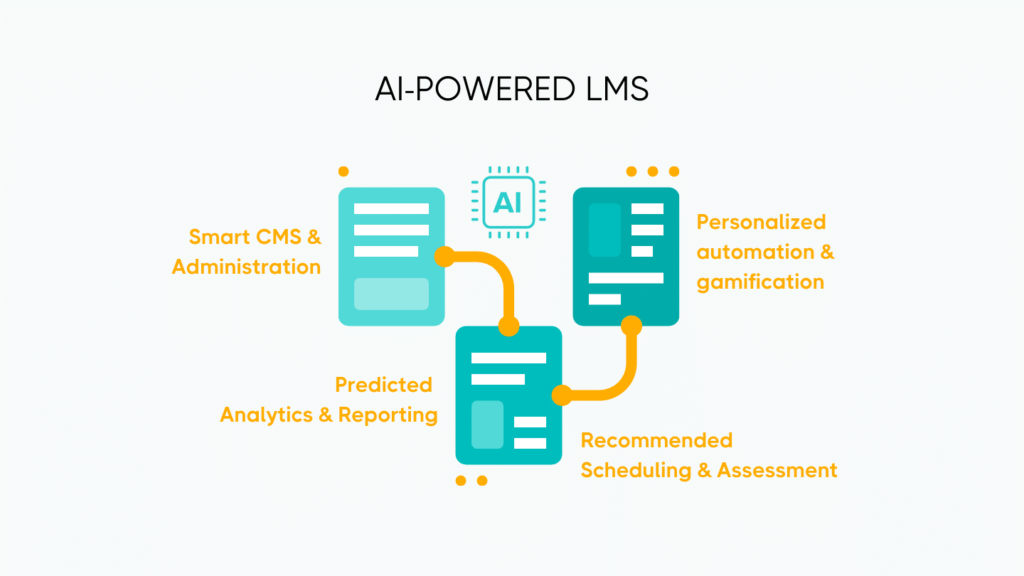
Modern EdTech-based LMS platforms are now evolving from traditional learning management systems to simulation-ready, AI-driven learning hubs. In this transformation from LMS to Simulation.
They personalize learning pathways based on each student’s strengths and weaknesses, automatically generate quizzes and study materials, and leverage artificial intelligence to flag learners who need timely support. This intelligent design ensures more impactful and adaptive learning experiences.
2. Immersive Simulation and Extended Reality in EdTech
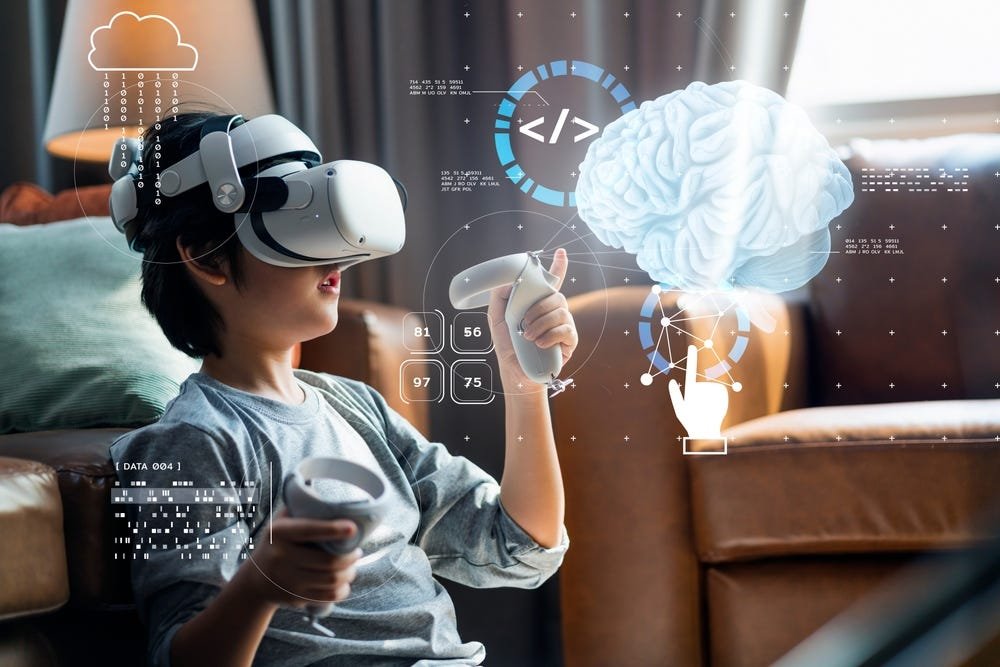
Moving beyond static content, modern EdTech is rapidly shifting from LMS to simulation-based learning. Through immersive technologies like AR, VR, and Mixed Reality (MR), learning has become deeply experiential.
Whether it’s touring ancient Rome, simulating human anatomy, or practicing surgical procedures, EdTech-powered simulations create interactive environments that boost retention and engagement. This transformation exemplifies how digital education is becoming more hands-on and effective.
3. Gamification, Social Learning & EdTech

Gamified elements—like points, badges, and leaderboards—infuse EdTech with charm and motivation. As EdTech evolves from, social features such as peer discussions, group projects, and user-generated content enrich the learning experience and support collaborative environments.
4. Data, Predictive Analytics, and EdTech
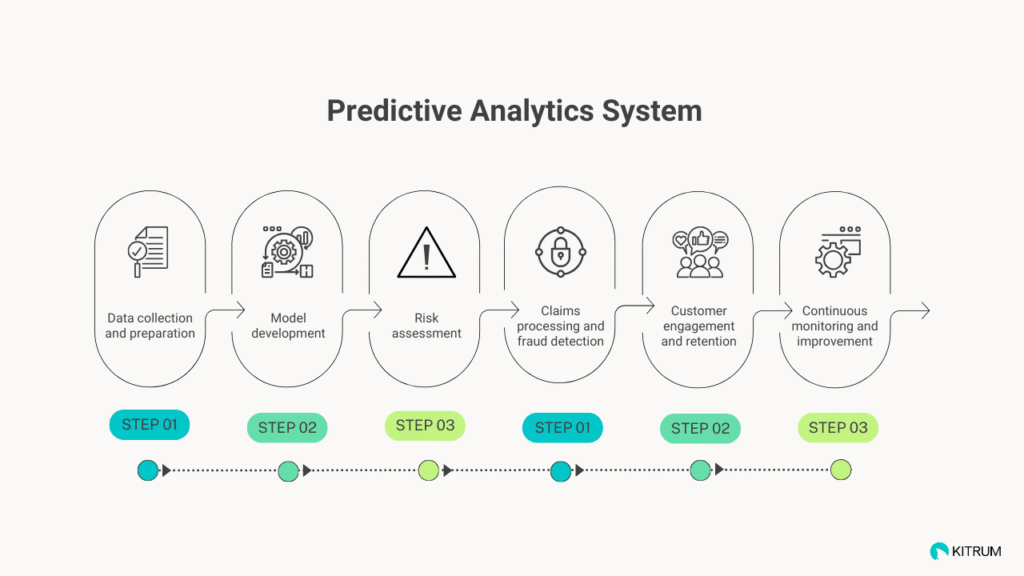
EdTech platforms are embedding deep analytics within their LMS frameworks. In the shift from, real-time dashboards now track attendance, performance, and behavior. This enables timely interventions, dropout prevention, and smarter, data-driven decisions in digital classrooms.
5. Mobile-First, Micro-Learning, and EdTech

As EdTech progresses from LMS to simulation, platforms are now mobile-first and on-demand. Feature-rich apps support offline access, real-time alerts, and cross-device learning. Micro-modules—like quick quizzes, short videos, or infographics—fit seamlessly into daily routines, making continuous learning easy and effective.
6. Hybrid & Remote Learning Ecosystems through EdTech
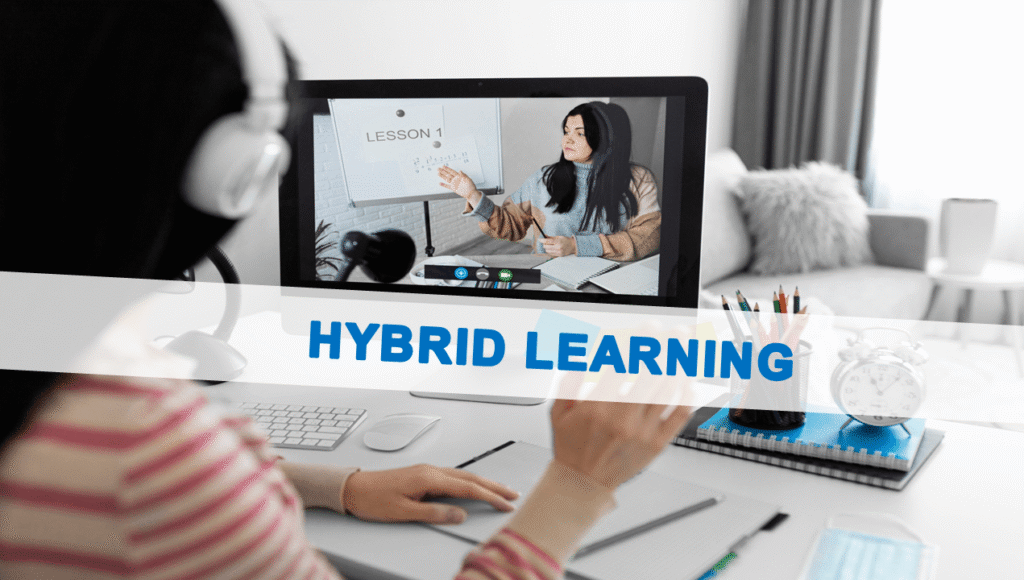
In the transition from LMS to simulation, EdTech has redefined remote learning. Post-pandemic, hybrid models now blend synchronous and asynchronous formats across digital and physical classrooms. Features like chatbot tutors, VR workspaces, and multilingual support are enhancing learning experiences significantly.
7. AI Agents, Virtual Students, and EdTech
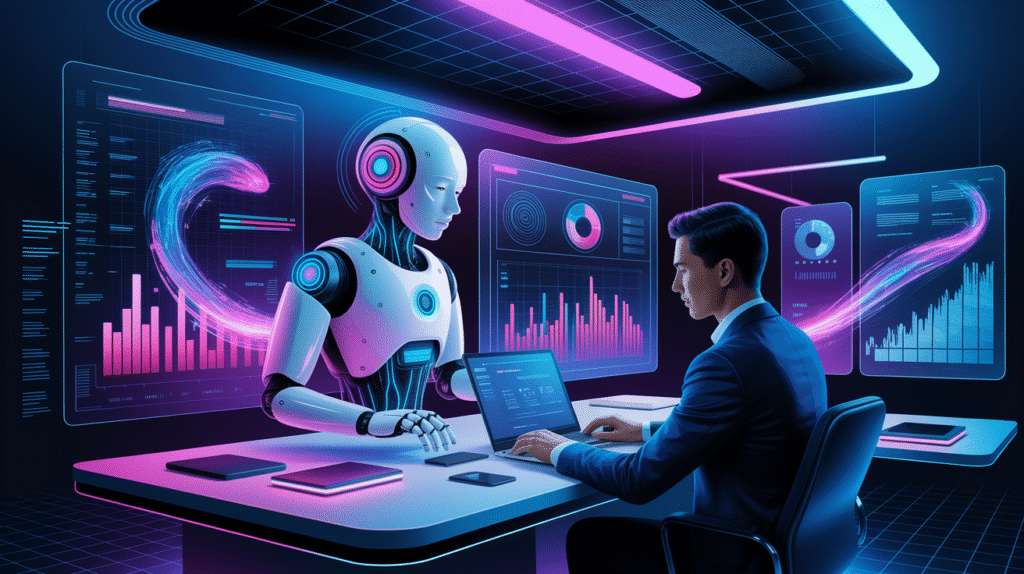
EdTech innovation is accelerating from introducing AI-powered virtual student personas. These support training and assessments, while AI teaching assistants manage grading, personalized support, and knowledge mapping. Some platforms even simulate classroom behavior to improve teaching strategies.
LMS to Simulation: Future-Proof Your Learning with EducateMe.
EducateMe suggests embracing adaptive learning platforms, AI-driven tools, and simulation-based training to stay ahead in the evolving EdTech landscape. As emphasized in focus on digital literacy, personalized content, and real-time feedback. Incorporating AR/VR aligns well with the shift from LMS to simulation, offering immersive learning experiences and access to the latest educational apps.
Regularly upskill with microlearning modules, attend webinars, and promote collaborative learning. By developing a tech-friendly mindset today, learners and educators can thrive confidently in tomorrow’s digital classrooms.
Stay Connected: Join Digital Communities That Empower Educators.
In today’s fast-evolving educational landscape, joining digital communities is more than a trend—it’s a necessity. Online platforms like Facebook Groups, LinkedIn communities, and Twitter chats bring together educators globally to share insights, strategies, and EdTech resources. These spaces foster collaboration, spark innovation, and offer emotional support during challenging times.
Active participation helps educators stay updated on EdTech trends—from LMS to simulation—while also gaining access to the latest teaching tools and classroom strategies. Whether you’re a new or experienced teacher, being part of these communities keeps you informed, inspired, and connected in a digital-first world.
Invest in Your Professional Growth with Targeted Learning.
To thrive in today’s dynamic education landscape, educators must commit to continuous improvement. Targeted learning programs—such as online certifications, subject-specific workshops, or EdTech training—help sharpen your skills and expand your knowledge.
With the shift from LMS to simulation technologies, staying updated through such programs is more essential than ever. These learning opportunities ensure you’re aligned with the latest tools, helping you integrate modern solutions into your teaching and better support diverse learners.
By intentionally choosing learning paths that align with your goals, you not only enhance your professional value but also boost student outcomes. Investing in your growth today ensures long-term success in tomorrow’s classrooms.
Follow Emerging Trends and Developments in Educational Technology.
Staying updated with the latest trends and developments in educational technology is essential for modern educators. From AI-powered learning tools and gamified apps to immersive AR/VR classrooms, EdTech is evolving rapidly as outlined in EdTech Trends 2025.
As education shifts from LMS to simulation, it’s critical to stay informed. By following EdTech blogs, joining webinars, and exploring new digital tools, teachers can enhance engagement, personalize instruction, and improve learning outcomes. Keeping pace with these innovations empowers educators to meet diverse student needs and remain effective in a tech-driven academic world.
What EdTech Means for Students and Educators
- Students gain personalized guidance, simulation-based learning experiences, and meaningful social interaction through EdTech.
- Educators can delegate routine tasks to EdTech-powered AI, dedicating more time to mentorship, creativity, and critical thinking.
- Institutions leverage EdTech to maximize training ROI, ensure inclusivity, and deliver affordable, scalable solutions globally.
The Road Ahead: Challenges & Opportunities for EdTech
This EdTech revolution carries immense promise—but also challenges: equitable access to XR, accuracy of AI-generated content, data privacy, and the evolving role of human educators. As the shift continues from LMS to simulation, these challenges must be addressed with care.
Thoughtful, empathetic EdTech design, strong accessibility features, and ethical AI integration are key to ensuring technology enhances learning without overshadowing the human touch.
Final Thought
EdTech in 2025 represents a hybrid ecosystem—where AI-enabled LMS, immersive simulations, data-driven insights, and mobile-first collaborative methods converge. This evolving EdTech landscape offers more adaptive, inclusive, and engaging educational experiences—and underscores the need for a balanced focus on humanity, security, and equity.



